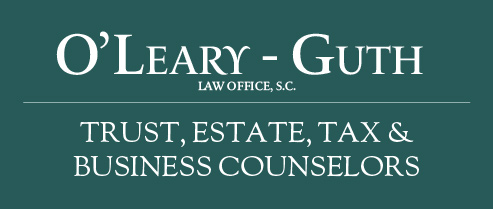Tips for Funding Your Revocable Trust
Posted: August 2, 2023
One common reason for creating a Revocable Trust is to avoid probate upon death. Probate is the legal process of administering a deceased person’s estate through the courts. Some people choose to avoid probate because it can add unnecessary expense and can be time-consuming. If you create a Trust and forget to transfer your assets to the Trust (commonly referred to as “funding” your Trust) during your lifetime, those assets may still go through probate. Thus, it can be very important to transfer assets into your Revocable Trust during your lifetime.[1] How do you go about titling your assets in the name of the Trust? Following are some tips.
Bank accounts
Typically, a bank account owned in your personal name should be retitled in the name of your Trust. To accomplish this, let your banker know that you have created a Revocable Trust and would like to re-title your bank accounts from your personal name into the name of your Trust. You may need to provide Trust documentation such as a “Certification of Trust” which provides the name of the Trust, the Trustees, and relevant provisions of the Trust.
Even if you re-title your bank accounts in the name of your Revocable Trust, you can typically continue to use it in the same manner you have in the past (subject to any unique provisions of your trust agreement). Even though your Revocable Trust is the owner of the account, your social security number will typically remain as the tax identification number on the account.
Real Estate
Any real estate owned in your personal name can be re-titled in the name of the Trust. To accomplish this, it is best to have your attorney or real estate professional assist with the preparation of a deed transferring the property into the name of the Trust. You will want to provide your attorney with the deed, tax bill, and mortgage statement (if any) so they can properly prepare and record the deed. Once signed, the deed is recorded with the county in which the real estate is located. It is important to note that if the property has an existing mortgage, sometimes your lender may require that the mortgage be paid in full if the property is transferred. However, for many types of transfers to Revocable Trusts, lenders cannot enforce your mortgage be paid in full if you transfer it into your Trust and you continue to occupy the property.
It is strongly recommended that you contact your title insurance company and homeowner’s insurance company, notifying them that the property is titled in the name of the Trust. Otherwise, there is a risk the insurance company may try to deny coverage.
Life Insurance, Annuities, Retirement, and IRA Accounts
IRA accounts cannot be owned by your Trust; additionally, it is not necessary to transfer ownership of your life insurance policies, retirement accounts or annuity contracts into the name of a Revocable Trust. Instead, request a form titled “Change of Beneficiary” or “Beneficiary Designation” from the appropriate financial institution, indicating that you would like to add the Trust (or other beneficiaries as recommended by your estate planning attorney) as a beneficiary on the account or policy. Note that there can be technical language that is important to add to these beneficiary designations for tax reasons, so we recommend requesting the exact language to use from an estate planning attorney.
Motor Vehicles
If you wish to re-title motor vehicles into the name of the Trust, you can contact the Department of Motor Vehicles (DMV)) and submit the forms provided by the DMV along with your title and registration to successfully title your vehicles in the name of the Trust.
Stocks and Bonds
Generaly, any stocks and non-retirement brokerage accounts you own in your personal name should be transferred into your Trust. To transfer brokerage accounts, notify the financial institution where they are held. To transfer individual stocks, you will need the original stock certificate, dividend check or statement, and the brokerage account information (if you choose to place the stock in a brokerage account). You can request a “Stock Power Form” from the appropriate financial institution, which will allow the transfer into the name of the Trust. A medallion stamp guarantee may be required to transfer any individual stocks in the name of the Trust.
Similarly, Treasury Bonds you own in your personal name can be transferred into your Trust. To accomplish this, you will need to go to the U.S. Treasury Website and obtain Form 1851 “Request to Reissue United States Savings Bonds to Personal Trust.” The form provides instructions to guide you with the transfer.
Tax Information
During your lifetime(s), for tax purposes most Revocable Trusts would use the social security number of the person who established the trust. For married couples, it is not required to have both spouses’ social security number listed on every asset, either spouse’s social security number will suffice. Income earned on your Revocable Trust assets should be reported on your personal income tax returns.
Funding your Revocable Trust is crucial for it to work as intended. For more information on Trust funding, or if you would like assistance, please contact us at (262) 238-6996.
[1] There may also be ways to incorporate beneficiary designations to accomplish your goals.
Schedule an appointment with us today.
Meet with a knowledgeable attorney who specializes in your area of law.
1251 W. Glen Oaks Lane, Mequon, WI 53092
F: (262) 238-6999
